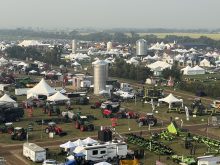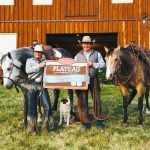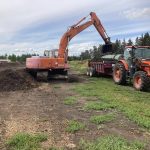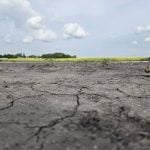Preventable illness; Cage-free; Landis school; Power grab; Horse treatment; Welcome news; Federal votes; Keep focus
Preventable illness
When we step into a mall this holiday season, we are greeted by the enthusiasm and frustration of parents, grandparents, aunts and uncles all searching for that perfect gift, often for a young child on our list.
Yet unknown to many of us, in the mere hour we searched for and waited in line to pay for that iPod touch on the shopping list, over 1,000 children have died across the world from preventable illnesses such as malaria, diarrhea and other fates all precipitated by poverty.
Read Also
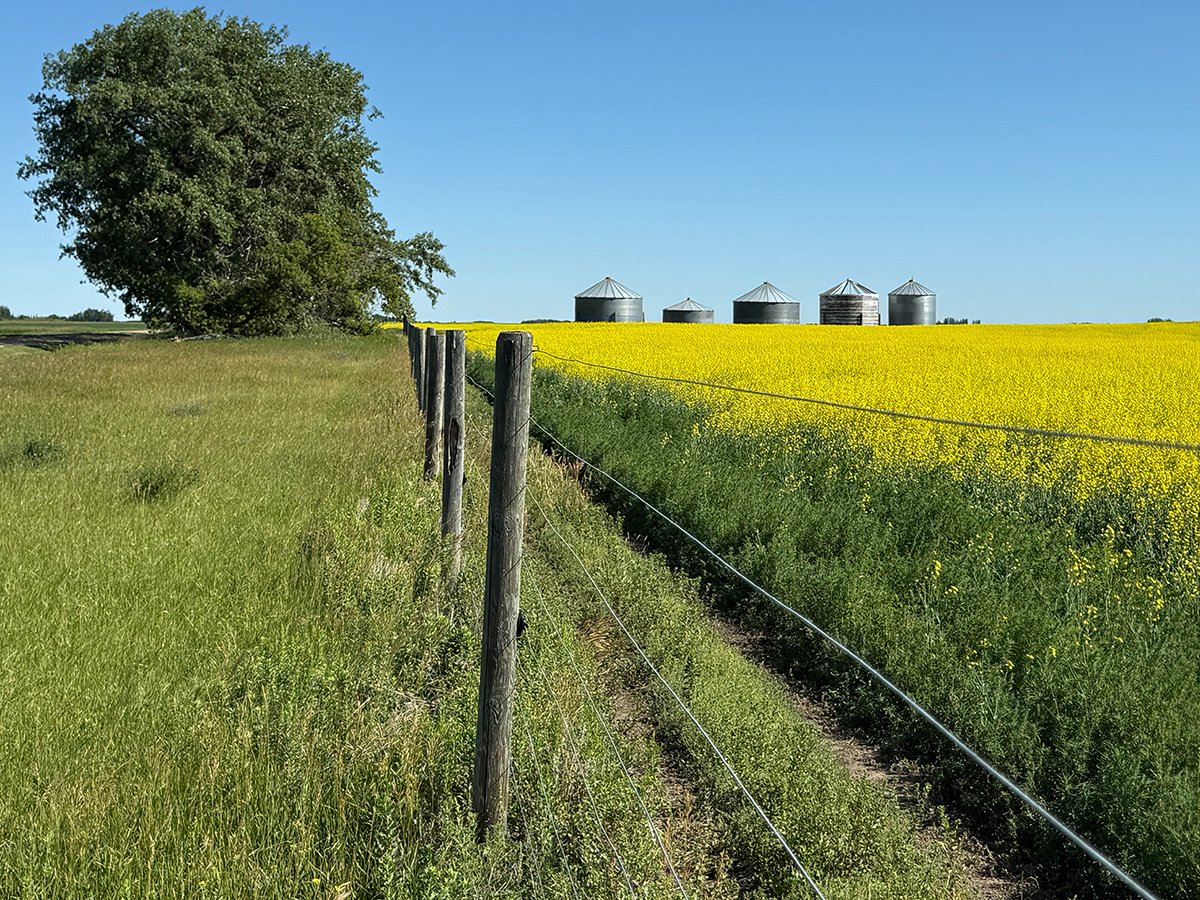
Producers face the reality of shifting grain price expectations
Significant price shifts have occurred in various grains as compared to what was expected at the beginning of the calendar year. Crop insurance prices can be used as a base for the changes.
According to UNICEF, 9.2 million children under the age of five die each year from such fates. These children will never open presents and their families never see the smiling faces that motivate us to spend endless hours in overcrowded stores.
Canadian campaigns have helped this dire situation. Since 1998 our distribution of vitamin A supplements have saved over 2.1 million children and Canada has been the largest donor for the distribution of insecticide treated bed nets to prevent malaria.
Yet, while our aid budget has increased by eight percent each year, government foreign aid investments in health have declined by over $250 million in just two years.
Canada can and should do more. As we celebrate the holidays this year, let us also think of the even greater gift we can give to the millions of impoverished children and their families. Let us urge our government to invest more into these cost-effective initiatives that save childrens’ lives, or let us also make these investments ourselves.
– Harshitha Gunawardena,
Edmonton, Alta.
Cage-free
The holiday season is upon us…. What will be interesting to see is if the current economic climate will affect people’s increasing preference for more humane food choices such as cage-free eggs.
If the past few months are any indication, I’m placing my bet on cage-free. Why? Despite the state of the economy, Californians chose compassion on Nov. 4 by passing Proposition 2, making it a criminal offence, with a phase-out period, to confine hens in battery cages, pigs in gestation crates and calves in veal crates.
This fall, more cities in Canada made the compassionate choice to go cage-free by adopting the cage-free resolution put forward by the Vancouver Humane Society and Humane Society International/Canada, and the universities of Ottawa and McGill switched some of their food services to cage-free.
All of this was after the economy took a turn for the worse.
People want to make more compassionate choices. The holidays are an ideal time to reflect on our life and choices and endeavour to improve the world for ourselves, those less fortunate, and animals.
– Bruce Passmore,
Director,
Outreach Humane Society International/Canada,
Vancouver, B.C.
Landis school
We have a fantastic school and we want to keep it. Our numbers are low, we know that.
We have been living in this community and province for a long time. Most of us have spent the better part of our life in rural Saskatchewan. We have seen the trend away from smaller communities in the past 30 years but have remained here because we feel we have something worth fighting for.
Rural Saskatchewan is on an upswing. We have businesses moving in or expanding. People are moving home realizing what they are missing not being part of a smaller community.
It is hard to have a family vibe in your community, wherever it is, if you don’t know or have anything to do with your neighbours.
In Landis we are all involved in each other’s lives, we are there for each other in good and bad times. People genuinely care about others. We are a family community.
The family feel of our community has naturally spilled over into our school. …
If the Landis School were to close, our kids would be removed from our community. Our students would spend a lot of time being transported to and from another community to receive schooling.
They would miss the interaction between community members and miss out on valuable life lessons that are learned through living in a family community.
It would be severely detrimental to our children to remove them from our community.
– Rebecca Huber,
Landis, Sask.
Power grab
The time has come for Western Canadians to separate from the rest of Canada.
Confederation was supposed to be an alliance of the provinces that would be good for every Canadian. This has not been the case for the West for many years.
Due to the large populations of Quebec and Ontario, they have usually elected whomever would give them the greatest advantage. Now that we have elected a government that we had faith in, it is being overturned by the Liberals and the NDP forming an unholy alliance with the Bloc.
Quebec has declared that they are a nation and by their own admission care only about themselves, so you can only imagine what they have been promised.
What the West will have is taxation without representation. No doubt the new coalition will spend money like drunken sailors in Quebec and Ontario in an effort to buy votes in the next election.
If this power grab takes place, I urge all western people to contact your premier and advocate separation.
– Bill Longbotham,
Calgary, Alta.
Horse treatment
Regarding horse slaughter and Mr. Norman Luba’s comments in your July 17 issue.
We have strong ties to the ranching industry. There is a powerful bond between livestock and rancher. Raising livestock requires a moral commitment that animals are well cared for and not made to suffer in any way.
This is why our government- controlled slaughter plants in the horse industry must continue to operate. They do serve a purpose.
The horse in North America is a noble and intelligent animal that helped to open up our country and is a symbol of beauty and freedom. It is hard to grasp that some countries regard horses as a source of meat, a healthy choice because of its high iron content.
When the pregnant mare’s urine industry came to the Prairies in the 1960s, draft mares were perfect because they were docile and big-boned. They could stand easier and longer than the light-weight mares….
Large draft foals eventually go to feedlots on the Prairies. They are fed till they reach about 1,600 pounds. Thousands of the choice are flown to Japan. Tied in stocks and already on their way to founder, they will have poles placed under them to support their weight. …
These horses suffer for many months until they (are) butchered.
I would think this end to a noble animal deserves better…
– J. McLean,
Edmonton, Alta.
Welcome news
The results of the recent Canadian Wheat Board director elections have been made public. Single desk supporters took four out of five director seats.
For myself and thousands of other western grain producers, this is very welcome news.
Obviously farmers have not allowed themselves to be intimidated by the heavy-handed methods and dishonesty employed by the Harper government in its effort to discredit and destroy the CWB.
The CWB is a grain producers’ business organization. Only grain producers have the right to make major decisions regarding the operations of the CWB, and this is through the democratic process of one person, one vote.
In other words, the federal government does not have the legal right to interfere. But interfere they did. Farmers took them to court several times. The courts ruled in favour of the farmers every time.
It is indeed a sad state of affairs when farmers must challenge the federal government through court actions to protect themselves and their marketing agency.
The Harper government seems to have little respect for democratic rights, fair play and honesty.
This should serve as a wake-up call to all Canadians. Can the Harper government be trusted to govern Canada in the future?
– George Hickie,
Waldron, Sask.
Federal votes
I am 70 years of age. I am very disappointed with our country. I am a Conservative card holder and voter and I am happy with Mr. Harper’s job as prime minister so far. I am very disappointed that the Bloc party is allowed to influence politics federally. They not only take votes away from the three federal parties, or should I say four, I forgot the Green party.
The people of Quebec should only vote for the federal parties in a federal election.
– Otto Donald Fonos,
Glenbush, Sask.
Keep focus
In the last federal election, Western Canadians voted overwhelmingly in favour for Stephen Harper and the Conservatives.
I believe that the message was short and simple. We in the West wanted to be an active part of Canada.
At the stroke of a pen, Stephane Dion, Jack Layton and Gilles Duceppe were willing to form a coalition designed at overthrowing the federal government. The CBC and the CTV provided extensive coverage of this event. Yet not once did I hear a word of concern for Western Canada.
The trio’s plans were short lived, and have now been foiled by their own cohort, Michael Ignatieff.
Let’s not lose sight of what the Liberals have done to us in the past. Pierre Trudeau and company were willing to rob Alberta’s oil to boost Liberal popularity in Ontario and Quebec, after they had forced us into the metric system against our will.
Ralph Goodale and company introduced the necessary legislation to destroy the (Crow grain transportation subsidy) that brought an end to the rural way of life as we had known it for almost a century.
Jean Chrétien and Paul Martin ended the Net Income Stabilization Account and other programs that would have provided a reliable retirement fund for future generations of farmers.
The future of Western Canada is dependent on oil, uranium, grain, beef and lumber exports to the U.S., China and other parts of the world, and not on Iggy’s popularity and/or political career. If we don’t lose sight of that, we’ll be OK.
– John Hamon,
Gravelbourg, Sask.






![Protesters crowd a street carrying signs that read, "Global warming real. In other news, water is wet," and "Stop denying the [blue painted pic of the Earth] is dying."](https://static.producer.com/wp-content/uploads/2025/07/29145152/158171_web1_2019-10-18T222818Z_1221762151_RC14C26A65A0_RTRMADP_3_CLIMATE-CHANGE-THUNBERG-1200-220x165.jpg)
